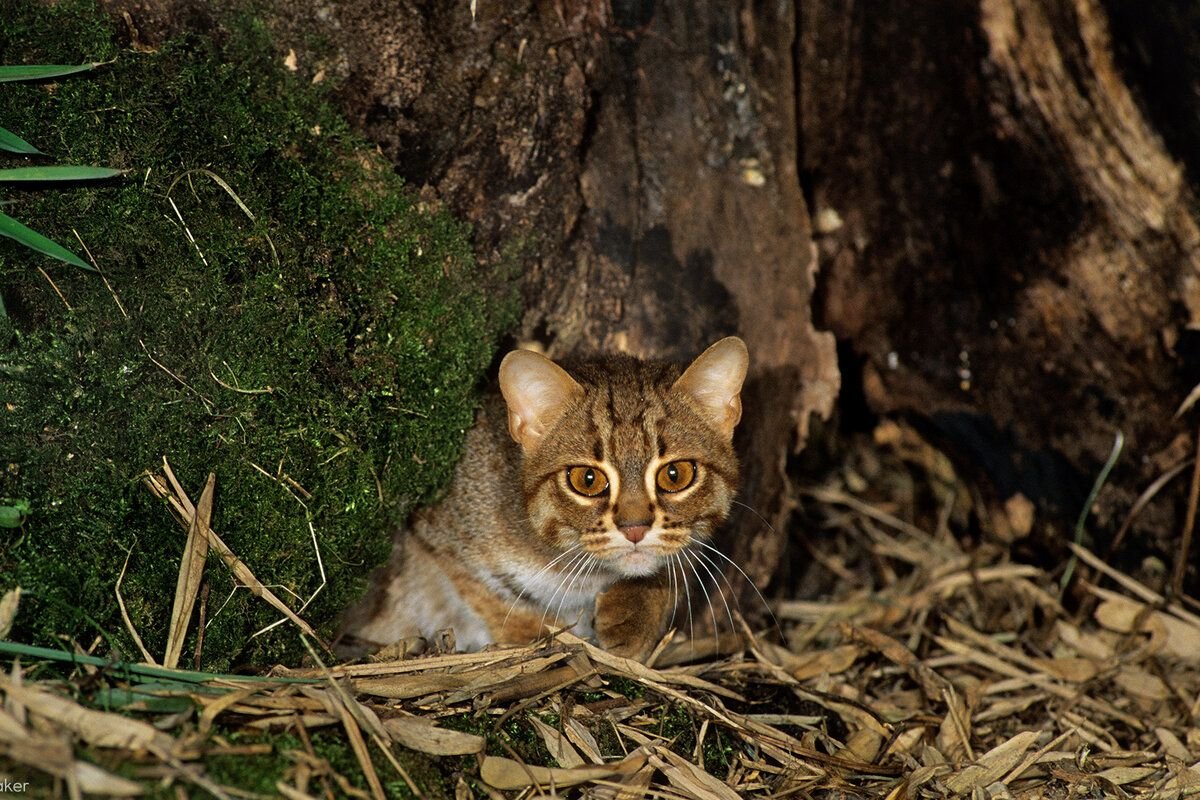Hybrid cats, born from crossing domestic felines with their wild counterparts, are captivating creatures that exhibit a blend of both worlds. These unique cats boast striking appearances, wild instincts, and distinct behaviors that stand out from typical house cats. This article explores different types of cats crossed with wild cats, their temperament, care needs, and ethical considerations.
Popular Hybrid Cat Breeds
Savannah Cat (Domestic Cat x Serval)
Savannah cats result from crossing a domestic cat with a serval, a wild African feline. These hybrids are known for their tall, lean bodies, large ears, and energetic nature. They are intelligent, social, and require an active lifestyle.
Bengal Cat (Domestic Cat x Asian Leopard Cat)
Bengal cats are famous for their exotic, leopard-like coat patterns. They inherit high energy levels from their wild ancestors, making them playful and adventurous. Bengals are highly intelligent and form strong bonds with their owners.
Chausie (Domestic Cat x Jungle Cat)
The Chausie breed originated from crossing a domestic cat with a jungle cat native to Asia and the Middle East. These hybrids are muscular, agile, and highly active. They require plenty of space and mental engagement to remain content.
Caracat (Domestic Cat x Caracal)
A rare and exotic hybrid, the Caracat is a cross between a domestic cat and a caracal, a medium-sized wild cat known for its tufted ears. These hybrids retain a striking wild appearance and require experienced handling.
Safari Cat (Domestic Cat x Geoffroy’s Cat)
Safari cats are a lesser-known hybrid created by crossing domestic cats with Geoffroy’s cat, a small wild feline from South America. These cats are intelligent and energetic and require plenty of mental engagement.
Temperament and Behavior of Hybrid Cats
Hybrid cats inherit behavioral traits from their wild ancestors, making them more active, independent, and intelligent than regular domestic cats. Their energy levels are higher, and they often love water, climbing, and hunting-like activities.
Socialization and Bonding
Hybrid cats require early socialization to adjust to a home environment. They can be affectionate but also retain cautious tendencies from their wild lineage. Some hybrids, such as Savannah cats, are highly interactive, while others may be more aloof.
Training and Mental Stimulation
Due to their intelligence, hybrid cats benefit from training and enrichment activities. Puzzle toys, climbing structures, and leash training are essential to keep them engaged and prevent boredom.
Vocalization and Communication
Many hybrid cats have unique vocalizations, including chirps, trills, and deep purring. Some breeds, like the Savannah, may be more vocal than others.
Care and Maintenance of Hybrid Cats
Hybrid cats require specialized care to maintain their well-being. Their dietary needs, exercise requirements, and environmental setup should cater to their wild instincts.
Dietary Needs
A protein-rich diet mimicking their natural prey is essential. Many hybrid cat owners choose raw or high-quality grain-free diets to meet their nutritional needs.
Exercise Requirements
These cats need ample exercise and space to roam. Large enclosures, interactive toys, and climbing areas help them stay active and entertained.
Grooming and Health Care
Most hybrid cats have short, sleek coats that require minimal grooming. Regular vet visits are necessary to monitor their health and address breed-specific concerns.
Ethical Considerations of Hybrid Cats
Cats Crossed with Wild Cats While hybrid cats are undeniably fascinating, ethical debates surround their breeding and ownership.
Legal Restrictions
Some states and countries restrict the ownership of hybrid cats due to their wild ancestry. Potential owners should check local regulations before adopting one.
Conservation Concerns
Breeding wild cats with domesticated felines raises concerns about conservation efforts. Some argue that breeding hybrids can disrupt natural populations and create challenges in the pet industry.
Responsible Ownership
Owning a hybrid cat is a long-term commitment that requires understanding its needs, providing proper care, and ensuring an enriching environment.
Conclusion
Cats crossed with wild cats offer a unique combination of exotic beauty and dynamic personalities. While they make fascinating pets, potential owners must consider their high energy levels, specialized care, and ethical concerns before bringing one into their homes. With proper understanding and responsible ownership, hybrid cats can thrive in a well-prepared environment.
FAQ
- Are hybrid cats legal to own?
- Hybrid cat ownership depends on local laws. Some places have restrictions due to their wild ancestry.
- Do hybrid cats make good pets?
- They can be great companions for experienced owners who understand their needs but may not be suitable for first-time cat owners.
- Are hybrid cats dangerous?
- Hybrid cats are not typically dangerous, but their wild instincts can make them more independent and unpredictable than typical domestic cats.
- What is the lifespan of a hybrid cat?
- Most hybrid cats live between 12 to 20 years with proper care and a healthy lifestyle.
- Do hybrid cats require special diets?
- They thrive on high-protein diets, often including raw or grain-free cat food.
- Can hybrid cats be trained?
- Yes, many hybrid cats are highly trainable and can learn commands, leash walking, and tricks.
- Are hybrid cats affectionate?
- Some hybrids, like Savannah cats, are very social, while others may be more independent or reserved.
- Do hybrid cats get along with other pets?
- It depends on the breed and socialization. Some hybrids coexist well with other pets, while others may have strong hunting instincts.
- What type of environment is best for hybrid cats?
- A spacious, stimulating environment with access to climbing areas, interactive toys, and supervised outdoor space is ideal.
- Are hybrid cats expensive?
- Yes, hybrid cats can be costly, ranging from a few thousand dollars to tens of thousands, depending on breed and generation.
